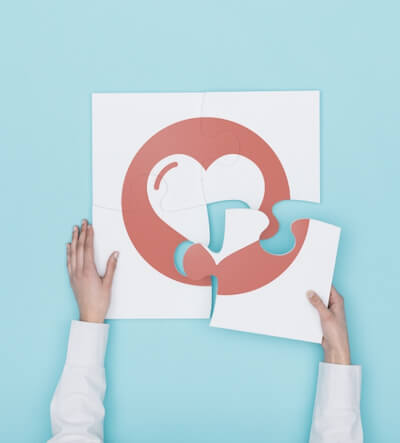The Resilience Series
Learning to Receive: your well-being is not selfish
Why is having “needs” or even “wants” not selfish?
For a moment, I don’t want to distinguish between “wants” and “needs” except to say this. We all have certain basic survival needs: a roof over our heads, food and water, clothing, and a sense of human connection. Oh, yes, and toilet paper, too! You could say a “want” is a desire, more frivolous, and something you can live without.
However, neglecting all of our “wants” can negatively impact the quality of our lives.
In other words, I would say that what we “need” and what we “want” are both important, understanding of course, that being frivolous is not always prudent.
Okay, let’s put that aside.
When I see a strong red score for type Two (you’ll what that means after taking the EQ Quiz), it usually means that this person has a blind spot for recognizing what they want or need, are unable to articulate it, and have a hard time receiving support.
Here’s a personal story that beautifully illustrates this.
My sister, Susan, is one of the most generous and supportive people I know. She’s been there as a support person for me in the worst of times, including when I went through my cancer journey 18 years ago.
I was recently helping her in her garden. Actually, she asked me to help!, which delighted me because it seems so rare for her to actually ask! And I was delighted to be there for her in whatever way I could.
Yet whatever I offered to do wasn’t exactly the way she wanted (okay, so maybe there’s a strong One score there, too! — check out the EQ Quiz if that doesn’t make sense!), so she un-did what I did to do it her way. In the end, all she wanted or needed was for me to stand there holding a box of Velcro ribbons which were anchoring plants in a particular way. Which was fine in that I just wanted to be there for her in whatever way she wanted.
However, I recognized a pattern that I knew would soon need to change.
She’s about to have a hip replacement surgery. As you surely know, there is a recovery period when she’ll need help and support from a caregiver. And I want to be there for her.
From our time in the garden together (and having seen her chart from the EQ Quiz!), I knew it was hard for her to ask for and receive help. And knew that would make being her caregiver difficult.
Though the time in the garden was a relatively small thing, it pointed to a challenge when the need for her to have support would be a big thing.
It seemed that it would be a good idea for her to practice receiving help. And to start practicing that NOW, so that when it really matters, she’d be able to ask, and actually receive whatever help or support she may need.
 Her well-being is important and is not selfish.
Her well-being is important and is not selfish.
She invited her husband to join us in a conversation about this. It was a sweet, beautiful, vulnerable and important conversation.
If you have any red in your type Two score in your Emotional Mastery Blueprint (which you get after taking the EQ Quiz), I suggest that you practice this, too!
If you want more support, if you want to get what you want and what you need, it’s important to look inside, to know yourself, to be guided by your “inner rudder,” not someone else’s.
If your needs are about your well-being, or your “wholeness,” then knowing what you want or need, and learning how to express what you want or need IS important. Only then can you really receive.



